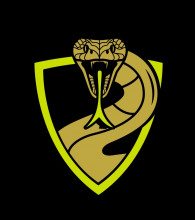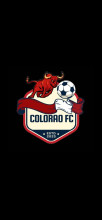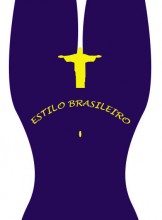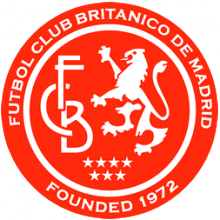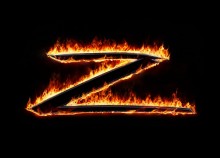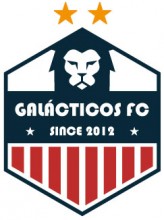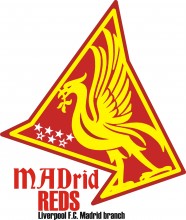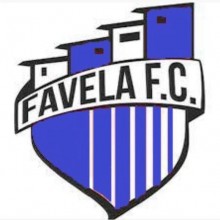IFL Madrid is 100% independent, so our rules are our own and are not subject to the INFS, the RFEF, UEFA or FIFA.
We do, however, use the laws of the game (for 11-a-side football) established by the IFAB and published by FIFA as a base, although our own laws of the game (below) take precedence. That is why it is essential that all players and coaches read and understand the laws below.
1.0 League Rules
1.1 All team captains are fully responsible for ensuring their team players read and understand the IFL Madrid rules, laws and regulations. All in-match disputes are to be resolved between the two captains during play. Any disputes that cannot be resolved must be reported to the IFL Madrid Committee using an official complaint form (found on the IFL Madrid website). All complaints will be examined and may be investigated by the Committee if the allegations are considered to be of a sufficiently serious nature. The Committee’s decision is, in all cases, FINAL.
1.2 The home team must contact the away team to confirm the venue, day and time of the match in the week before the fixture, and the away team are expected to respond as a matter of courtesy. This must be done no later than the Friday before the match. Unless an agreement is made between the two teams to play the match on an EARLIER date and/or at a different location, the game will be played in normal playing conditions (pre-allotted time on Sunday [see fixture list] at the Santa María del Pilar School).
1.3 If a team cannot fulfil a league fixture, they will lose the match by a default score of 7-0.
Any team who cannot play their scheduled game must notify the opposition captains before midnight on the Friday before the match is supposed to be played (please include a committee member in the communications).
However, if a team captain finds they can not field a team on the day of the game, they must notify the opposing team a minimum of TWO HOURS before the scheduled/ agreed kick off time or it will be classed as a ‘no show’ (a team not presenting itself on the day without warning). A 'no show', in addition to a 7-0 forfeit, will result in a caution and a possible one-point deduction by the Disciplinary Committee. Any repeat of the offence will result in further points deductions and possible expulsion from the league.
1.4 Postponements are not permitted. Only in truly exceptional circumstances, such as extreme weather conditions rendering the pitches unplayable, will it be possible to play a match after its scheduled date. Any request must be submitted to the committee as soon as the impediment is known. The committee will decide on the validity of the request, along with any potential rearranged fixture.
1.5 The home team is responsible for booking the pitch in the first instance.
1.6 The home and away teams share the cost of the pitch (the away team reimburse the home team for half the total cost of the pitch).
1.7 The home team must ensure pitches are paid for BEFORE the game starts.
1.8 The home team chooses the ball (futsal ball), which end of the pitch to start and takes kick off.
1.9 Both team captains must confirm and agree the final score with each other after the end of the game and enter the result and goalscorers immediately.
1.10 All players must be over the age of 18.
1.11 Players cannot play for more than one team per season barring the following exceptions:
- They have been given special dispensation to do so by the IFL Committee.
- When they have been officially transferred during the transfer window
- (The transfer window opens from ‘close of business’ on the last game of the calendar year and closes before the first game of the following year. During this period, players can transfer from one team to another on the condition that both team captains involved submit approval of the transfer to the IFL Committee, who in turn must approve the transfer for it to be completed).
Under no circumstances can a player play in the League Cup for more than one team in the same season.
1.12 League Format - Teams will be divided into two/three seeded groups (based on last season's league positions) for the first phase of the season and will play the other teams in their group once. The teams in the top half of their respective groups at the end of the phase will be divided into a first division and a second division. Points will be reset to zero and the teams in each division will then play against each other twice.
1.13 Tie-breakers - In the event of a tie on points at the end of the season between two or more teams in a division, the points and goals scored for and against in direct ‘head-to-head’ matches in the second phase will be used to separate the teams. Only if this is level, the head-to-head record from the first phase will be added if applicable in order to break the tie. If the tie is still not broken, then total number of wins, followed by overall goal difference, then overall goals scored (in the divisional phase of the season only) will decide final positions. Beyond this, the IFL Committee will decide a course of action.
1.14 Individual trophies or medals are awarded to the winners and runners up of the First Division, the Second Division, the League Cup, the International Cup and Carroll Cup competitions. There are also Pichichi (individual top goalscorer) and Zamora (goalkeeper of the lowest conceding team) trophies awarded in each division (records for the second phase of the season contribute to this, but 7-0 default results are NOT included towards these statistics). A Most Valuable Player (MVP) trophy will be awarded to the best player of the season for the whole league, as decided by the committee.
1.15 In league matches, teams are assigned three points for a win, one for a draw and no points for a loss.
1.16 Matchday captains must be clearly identified as such before the match, so that the resolution of on-pitch disputes can be mediated through them. It is advisable for captains to wear an armband in order to make their identity clear to all.
1.17 Punctuality - Matches must start and finish on time. If a team is not ready to play their match 10 minutes after the scheduled kick off time, they will begin the game 2-0 down. (These goals are to be entered as own goals on the website.) If a team is not ready to play their match 20 minutes after the scheduled kick off time, it will constitute a 'no show' with a resulting 7-0 default defeat and referral to the disciplinary committee for possible further sanctions. Running over time may result in being ejected from the pitch by teams in the next time slot. The score at this point stands as the final result.
1.18 Match results – All teams must enter their results and goalscorers into the IFL Madrid website immediately after the match. Failure to add results and goalscorers the same day of the match is considered a personal misdemeanour for the captain and vice captain. Repeat offenders will be referred to the disciplinary committee. Match results will be closed for editing on Tuesday following the game.
2.0 Laws of the Game
2.1 The duration of the game is 25 minutes each half. Half time must be no longer than 5 minutes. Any time added for long stoppages (e.g. player injuries requiring attention) must be agreed by the two captains.
2.2 There can be an unlimited number of substitutes, but they must be made when the ball is dead, in possession of the team making the substitution (unless after a goal or half-time), and the incoming player must enter the pitch from behind their own goal line.
2.3 Corners will be taken thrown in by hand from behind the head. Corners are indirect.
2.4 When the ball leaves the pitch by the touchline, ‘kick ins’ will be taken (i.e. brought back into play by foot). ‘Kick ins’ are indirect.
2.5 When the ball leaves the pitch via the goal line last touched by an attacking player (i.e. for a goal kick), the ball must be placed on the ground and not be in motion before being kicked back into play. The goalkeeper is not allowed to throw the ball ‘from dead’ to bring it back into play. In the event that this happens the offending goal keeper must retake the kick.
2.6 If the goalkeeper handles the ball outside his area, the offence will be punished with a penalty kick (with further punishment if it is agreed that it constitutes an infringement of Law 3.2).
2.7 ALL free-kicks are direct. Free kicks can be taken quickly but defending players can encroach if steps are not requested. If steps are requested, defending players or ‘walls’ must retreat 5 yards/paces from the ball. When the 5 steps are requested, the attacking team must wait for the defending team's ok to take the kick.
2.8 Defending players must be 3 yards/paces away from the ball on a corner or ‘kick in’.
2.9 The home team is responsible for timekeeping and MUST call out "five minutes left" when 20 minutes of a half have passed, and "one minute left" when 24 minutes have passed. When 25 minutes are reached, the timekeepers MUST call out "time/tiempo". The next time the ball goes out of play, the timekeepers MUST shout "last play/última jugada". The next time the ball leaves the pitch, the match is over (except when the ball leaves play by way of a goal or a foul, in which case the game will restart again and finish the next time the ball exits play).
2.10 ‘Foot up rule’ – attempting to tackle another player showing the sole of the foot and coming over the top of the ball is considered dangerous play and punished as a foul.
2.11 There is no offside rule.
2.12 A free kick is awarded if a goalkeeper, inside their penalty area touches the ball with the hands after it has been deliberately kicked to the goalkeeper by a team-mate. The free kick is taken from where the pass was made. If the pass was made in the penalty area, the free kick is taken from the edge of the penalty area in line with where the pass was made.
2.13 A goal can be scored directly from a goalkeeper’s kick out when ball is in open play, but NOT from a goal kick OR a goalkeeper’s direct throw.
2.14 Outfield players cannot use sliding tackles. Goalkeepers may slide as in 11-a-side laws.
2.15 During a match dispute both captains must immediately ensure their team's players return to their goal area to allow both captains to discuss the dispute. Captains can call over players to help with the discussions.
2.16 Hand ball / ball to hand – a free kick will be award to the opposite team if the ball touches a players arm whether it be accidental or deliberate.
3.0 Safe and Fair Play
3.1 The IFL Madrid takes the safety of its players extremely seriously. Therefore, in the event of seriously dangerous play or violent conduct by a player, he must leave the pitch and cannot return for the remainder of the match. The offending player’s team must play with no more than four players for a period of five minutes from the restart. After that five minute period, a fifth player may enter the pitch for the sanctioned team (if they have another player – the expelled player cannot re-enter). An official complaint form must be completed and submitted to the Disciplinary Committee for review and may result in the permanent expulsion of the player from IFL Madrid. Repeat offending by the same team may result in a deduction of points or even permanent expulsion of the team from the IFL.
3.2 Clear and intentional cheating (e.g. catching the ball in order to interrupt a movement by the other team) is considered serious unsporting behaviour and will not be accepted. If both team captains agree that the act was intentional, the player must leave the pitch and cannot return for the remainder of the match. The offending player’s team must play with no more than four players for a period of five minutes from the restart. After that five minute period, a fifth player may enter the pitch for the sanctioned team (if they have another/other team member/members off the pitch – the expelled player cannot re-enter). An official complaint form should be completed and submitted to the Disciplinary Committee for review.


 Colorao FC
Colorao FC Finbars 67
Finbars 67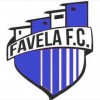 Real Favela
Real Favela ForFoxSake
ForFoxSake The Void
The Void Atlético Anacondas
Atlético Anacondas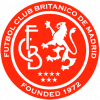 FC Británico de Madrid
FC Británico de Madrid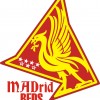 Madrid Reds
Madrid Reds FC Red Calm
FC Red Calm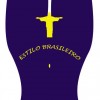 Estilo Brasileiro
Estilo Brasileiro Los Galácticos
Los Galácticos Morning Glory
Morning Glory